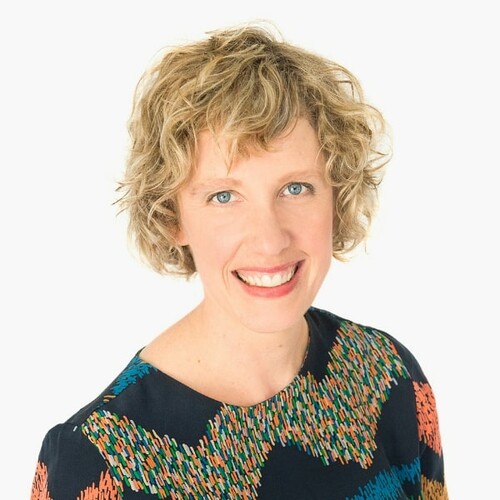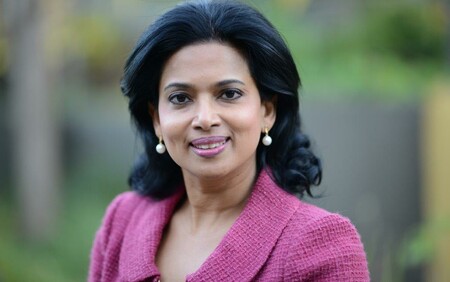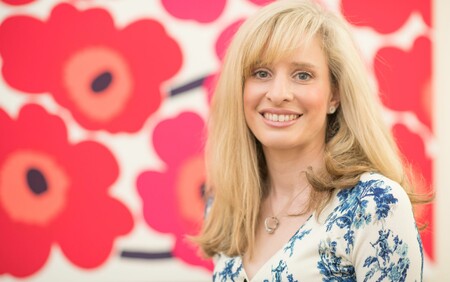
Meet the Real Life Nina Proudmans
“My experience and what I’ve gone through has subconsciously influenced me and molded me into the doctor I am today.”
*This article was first created and published by Business Chicks.
For these three fertility specialists, based out of Melbourne IVF, helping their patients to have “the joyful experience of becoming a parent” is all in a day’s work.

Dr Melissa Cameron
As a medical student, Melissa Cameron had a keen interest in surgery – so she never thought she would study obstetrics and gynaecology and become a fertility specialist. However, when she got a taste for the discipline on her student rounds, she realised it might just be the perfect match for her interests and skills.
“I love the challenge with gynaecology,” she says. “Every patient is a little different, and as a gynaecologist you feel a bit like a detective – asking lots of questions in order to find out what is going on.”
With a balance of time spent in the office with patients, and performing procedures such as endometriosis surgery that can transform a patient’s life, no two days are the same for Melissa. And though she says she loved delivering babies, she no longer practices obstetrics, freeing up her time for gynaecological medicine including IVF.
Most days begin at around 7am with fertility scanning and IVF procedures, then Melissa spends a large part of her day consulting with patients, and some time operating.
Melissa and her partner, an emergency physician, have two children, aged 11 and 8. Their kids were conceived with the help of a sperm donor, who was a long term friend.
“My partner went to University with him and I’ve known him as long as I’ve known her. We spent quite some time discussing all the ramifications of him being a donor, we all had counselling and used the services of a clinic – Melbourne IVF actually! – in order to quarantine his sperm to reduce any risks to us,” she shares.
“Being a doctor, the process was somewhat familiar, but nothing really prepares you for the ups and downs of treatment. We feel super fortunate to have our kids; in fact they are thoroughly sick of me telling them how lucky I am.”
With their busy work schedules and no family support in Victoria, employing a nanny has been a lifesaver for the couple, and Melissa says her hat goes off to families who make it work without any assistance. “I don’t know how people do it without family support, or the ability to pay for help,” she says.
Though she’s not so keen on the business side of things, and finds paperwork a chore, Melissa enjoys the challenge of surgery and considers meeting the babies she helped to bring to live amongst her favourite moments.
For Melissa, the trust that patients place in her is both an honour and a privilege.
“I think we forget how special it is, to be able to help someone make a baby. Having gone through fertility treatment myself, I realise that people are laying their whole lives in front of me. It helps ground me and realise how fortunate we are,” she says.
“It’s important that patients remember they always have the right to seek a second opinion – not just when it comes to fertility medicine, but for all health issues. Surround yourself with the people you need to help you, and don’t be afraid to try someone else if you’re not that happy, as there will be people out there who suit you.”

Dr Kokum Jayasinghe
When falling pregnant didn’t happen as quickly as Kokum expected, she knew she needed fertility treatment. After all, as an obstetrician and gynaecologist in training at the time, she recognised the signs.
“I initially had no ambition to be a fertility specialist, that was far from my dream; I wanted to be a GP,” she shares.
“When I was training I was also trying to start a family, and I realised I needed help. But I was unwilling to share that information with anyone, so I tried to do my treatments when nobody at work would know.”
Fast-forward to today, Kokum has two beautiful sons, aged 11 and 8. Kokum’s own experiences have influenced the way she practices fertility medicine, as she knows only too well how isolating and challenging it can be. It only took 10 years for her to overcome the stigma attached with infertility and speak about it openly.
“The thing I discovered is, it’s quite hard work! It’s a struggle to go to appointments and fit it all in, especially for people who work full-time and may have a little child already. So I start my practice at 7am, so people can come and see me before they go to work,” she says.
“My experience and what I’ve gone through has subconsciously influenced me and moulded me in to the doctor I am today.”
For Kokum, who won a scholarship to study Medicine in Melbourne Univercity when she was just 19, a typical day begins at around 6.15am. She leaves her sons in her husband’s capable hands so she can get to work; Kokum’s husband, a surgeon, often works evenings or on-call, so the pair have become experts at juggling family and household commitments, with help from the extended family.
Depending on the day, she could be performing egg pick-ups and embryo transfers at the Royal Women’s Hospital, working with fellows, attending teaching sessions and seeing her private patients.
Sometimes things don’t go to plan: like the morning a few weeks ago when she arrived at her office and the lights didn’t work. With a packed schedule, she had to move forward with her first appointment.
“It was pitch black but we started the examination and I performed her ultrasound in darkness – with ultrasounds the darker the better, actually!” she says.
“The maintenance guy arrived and said, ‘I’ll come back in half an hour’. I said, ‘No, please fix it now!’ We are literally talking about my patients losing their eggs if I am late for theatre, so we couldn’t wait.”
Kokum’s advice for couples who are experiencing challenges when starting a family is direct: “Don’t be shy – start seeking help early. Not all need IVF and there could be more simple ways to help”
Her approach to her patients is as individual as they are, informed by her own IVF journey, she adds. “It’s not my experience that matters, it is her experience and I have a focus in my practice to explore all the non invasive methods to help my patients before considering IVF. I have the empathy and understanding, as well as the skills and expertise needed to help my patients have the joyful experience of becoming a parent.
If IVF is necessary I am part of the best team in Melbourne dedicated to your success.

Dr Raelia Lew
These days, Raelia Lew calls herself a “retired obstetrician”. No longer a real-life Nina Proudman, she’s now a dedicated fertility specialist and reproductive endocrinologist, making her one of just 2 per cent of obstetricians and gynaecologists who have gone on to complete this sub-speciality.
After her alarm gets her out of bed at 6am, she’s getting the kids ready and tag-teaming with her husband to get everyone out the door. Then Raelia drives into the city and it all begins: procedures on her surgery list, before doing an embryo transfer or two for an IVF patient, before a busy afternoon of patient consultations.
Like her colleagues, Raelia has personal experience of IVF – albeit for somewhat different reasons. Before starting a family, Raelia and her husband underwent pre-conception genetic screening, which revealed that they were both carriers of the cystic fibrosis gene.
“My husband and I were very clear that we would not want to continue a pregnancy with a child with cystic fibrosis. He lost his mum when he was 7 to breast cancer, which affected him very profoundly throughout his life, and he didn’t want to lose a child to something like this,” Raelia explains.
“Personally, I felt much more comfortable testing the embryo first rather than having to make a difficult decision if I found out about a diagnosis during pregnancy, though I fully support the rights for a woman or couple or terminate a pregnancy under any circumstances, if she doesn’t want to be pregnant.”
They decided to go down the IVF path to reduce the likelihood that their children would have the condition, and she’s all too aware how lucky they were to require just the one cycle to get enough embryos to have her family.
When it comes to balancing her busy work life with home commitments, Raelia reflects on advice a mentor once gave her: “When you’re juggling a lot of balls, don’t drop the glass ones.” For Raelia, this means blocking off dates during the school holidays to spend quality time with her kids, and making time in her schedule for fun.
Her top tip for hopeful couples is to choose a specialist you have faith in, who will look after you on your journey; finding a specialist you can really connect with should be your top priority.
Raelia also strongly discourages patients from turning to Dr Google for advice or a symptom check, and knows from experience that this can lead to over-investigating and undue stress, a Pandora’s box of sorts.
“Most patients I see with infertility, we can find a solution to their problem,” she says. “But it’s really important to identify issues and proactively manage them, without catastrophising.”
